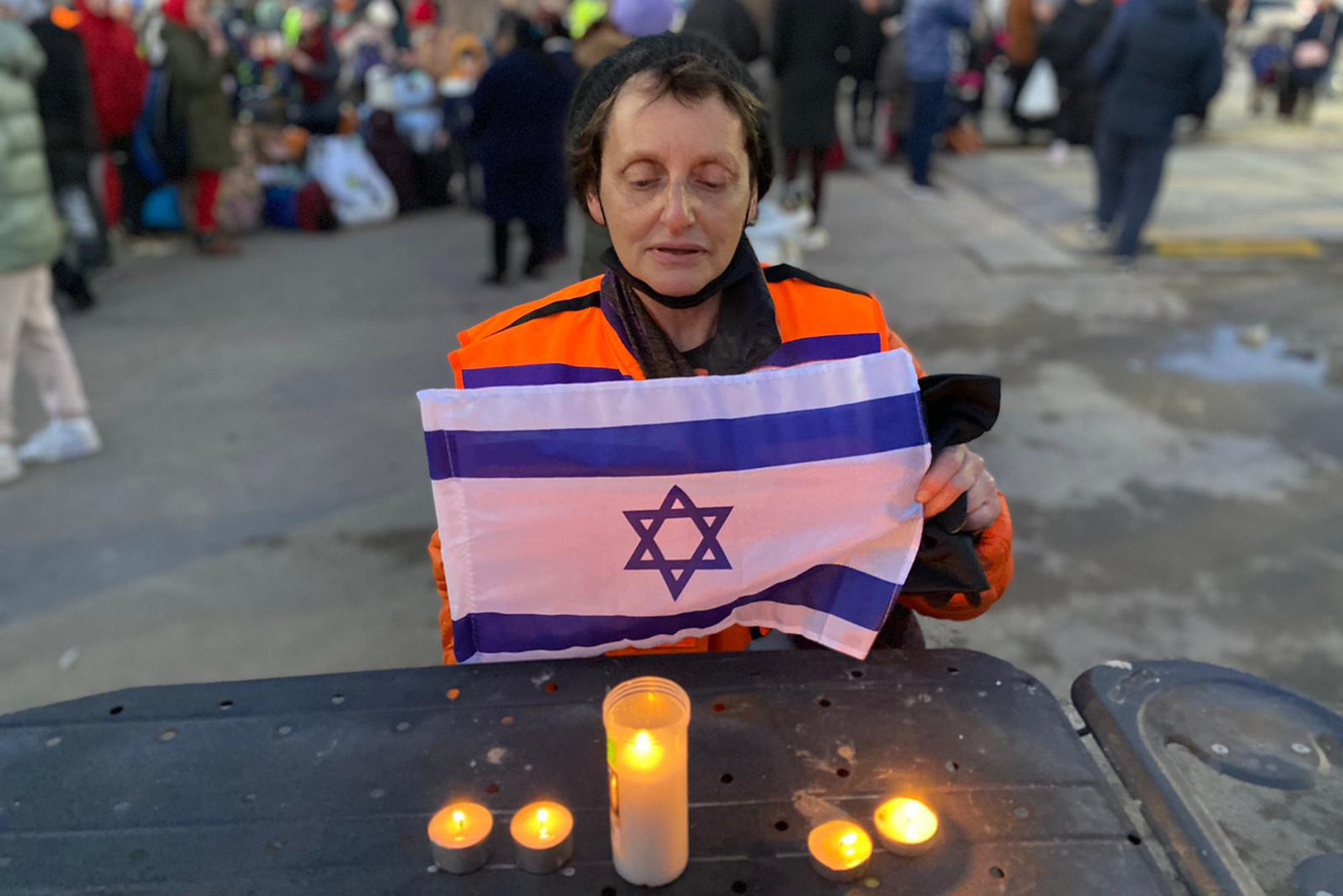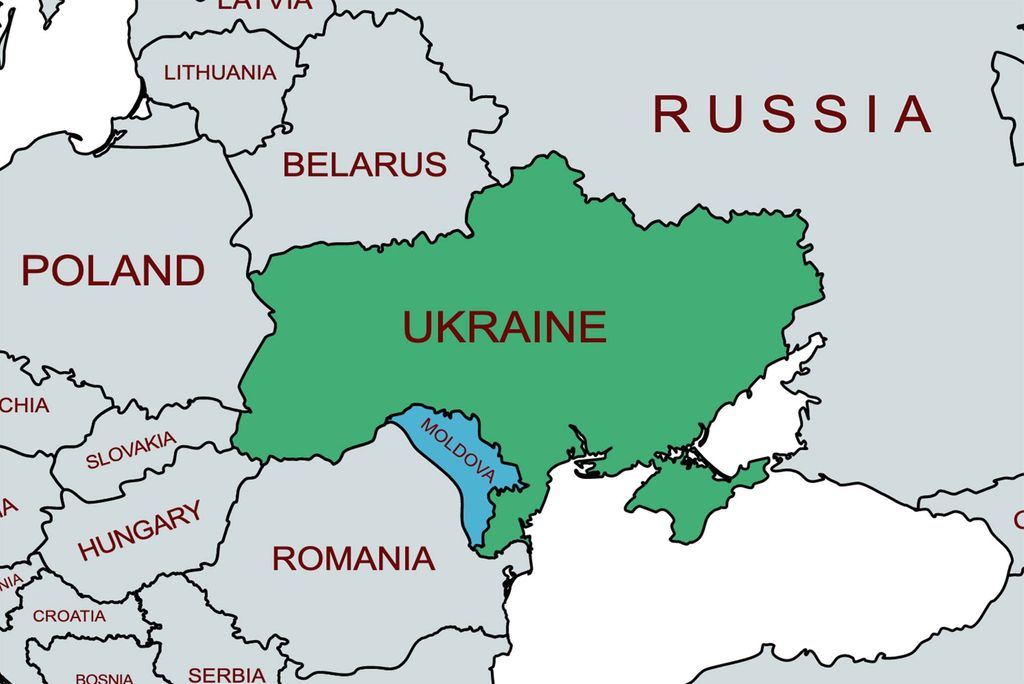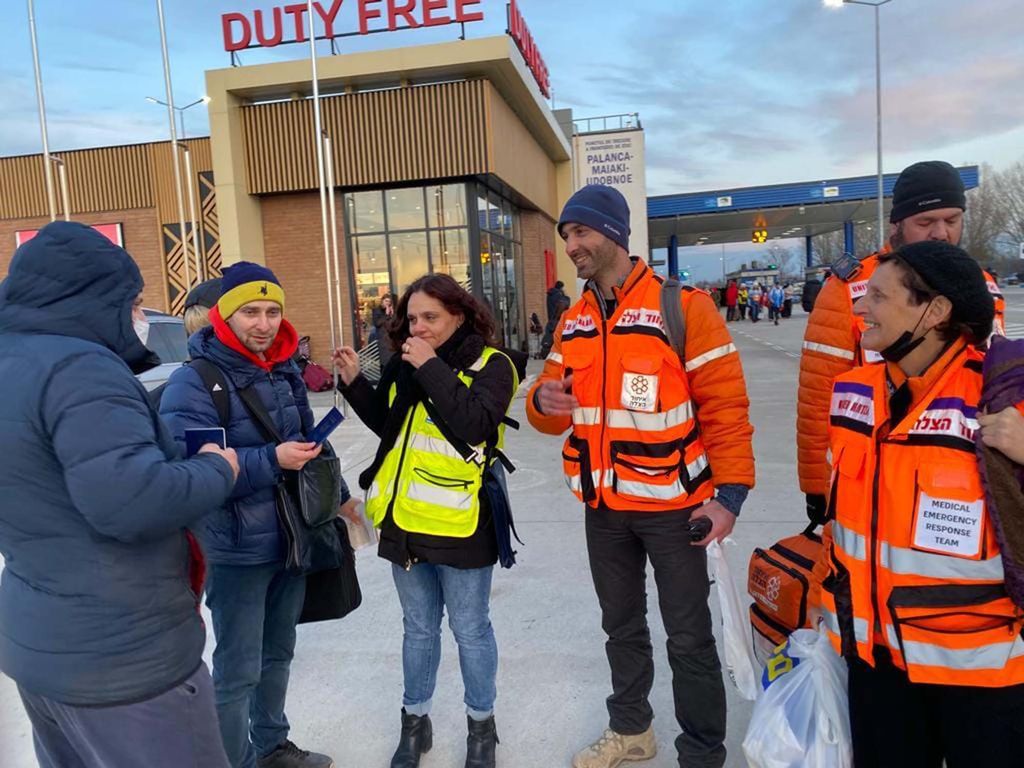For This BU Alum, Helping Those Fleeing Ukraine Is Personal

Jill Shames (COM’82 SSW’83), here lighting Shabbat candles, is helping Ukrainian refugees from the Russian invasion as they enter neighboring Moldova. Photos courtesy of Shames
For This BU Alum, Helping Those Fleeing Ukraine Is Personal
Jill Shames (COM’82, SSW’83), a descendant of refugees who fled Russia, offers a firsthand account on what she’s seeing in Moldova
But for her great-grandparents’ escape from Odessa more than a century ago amid a wave of Russian anti-Semitism, Jill Shames might be fleeing for her life today from the Russia-Ukraine war. Instead, the eddies of chance have carried Shames (COM’82, SSW’83) to neighboring Moldova, helping refugees as a worker with the nonprofit, fully volunteer emergency medical service group United Hatzalah of Israel.
The New York Times published her photo and comments last week in an article about Jewish aid workers rescuing refugees in a region where some of their ancestors fled Russian pogroms a century or more ago. Moldova, bordering Ukraine to the southwest, has accepted more Ukrainians per capita than any other nation, but its citizens are nervously eyeing the Russian forces bearing down on nearby Odessa in Ukraine.

Shames moved from Pittsburgh to Israel in 1996 with her husband, Jeff Shames (MED’85), and their four children. Besides specializing in therapeutic work with trauma survivors, Shames, an advanced black belt in Okinawan Shorin Ryu karate, trains instructors in therapeutic martial arts and empowerment self-defense. Until recently, she was head of training at Kids Kicking Cancer Israel.
She gave Bostonia her on-the-ground take of the Ukraine crisis and its relevance to her family history.
Q&A
With Jill Shames (COM’82, SSW’83)
Bostonia: Can you talk about how the current plight of Ukrainians resonates personally for you?
Jill Shames: My great-grandparents on my mother’s side, Morris and Lena Weinbaum Schwartz, were born and raised in Odessa. They loved Odessa. One day, Russian soldiers seized Morris to force him to serve in the Russian Army. For most Jews, service in the Russian Army was a death sentence. They were expected to serve for 25 years and were placed disproportionately in the frontlines. Legend has it that Lena came to the prison where he was being held with bottles of vodka, got the jailers drunk, and broke her husband out of jail.
They and their two small children fled that night and made their way across the continent. They arrived in Ellis Island in 1881 and settled in New York City. Morris worked as a tailor and Lena opened a Russian tea room, a favorite watering hole for Jewish gangsters on the Lower East Side of Manhattan. Morris died in 1914 after a long and painful bout with cancer. Lena raised their 10 children and supported the family on her own. She is a family superhero.
As I meet each of these Ukrainian refugees I cannot help but think of my great-grandparents and their flight from the Russians. They saved themselves and their descendants from pogroms, from Hitler, and from today’s crisis. I, a child of their children’s children, have the honor to take part in doing what couldn’t be done 122 years ago or even 70 years ago—to represent the thriving State of Israel and all of humanity in easing their suffering and laying a path to safety.
Bostonia: What services are you providing to refugees from Ukraine, and in what venues?
Jill Shames: I volunteer in United Hatzalah’s Advanced Psychotrauma Unit. That means that I am summoned to the scenes of accidents, heart attacks, sudden deaths, terrorist incidents, suicides, etc., to offer psychological first aid and PTSD prevention interventions to family members, witnesses of traumatic events, and my fellow first responders.

We are providing medical care and humanitarian first aid for everyone affected by this crisis, regardless of religion or race. This includes the refugees themselves, the family members awaiting word from them, and the many volunteers who have stepped up to support the refugees through this traumatic experience.
We have teams at both border crossings between Ukraine and Moldova, where we assess needs and provide medical care, psychological first aid, and information to help folks as they continue their journeys. At our headquarters at the Agudat Yisrael Synagogue in Kishinev, we run a medical clinic, provide meals, clothing, toys and snacks for kids, diapers, and sanitary supplies to anyone seeking help. We also have teams going to and from hotels, dormitories, and other Kishinev synagogues, bringing medical and humanitarian support to refugees they are housing. All our teams have Russian translators who facilitate communication. Happily, many refugees and local residents who speak Russian or Ukrainian and either Hebrew or English have joined our efforts to help with translation.
Finally, we assist refugees eligible for entry into the State of Israel to file their documentation and get preliminary approval. We provide transportation and support as we travel from Moldova to the airport in Romania and help them manage their children, pets, and belongings on the buses, at the airport, on the flights and upon arrival.
Bostonia: What are the conditions of the people you’re helping?
The people we are helping arrive with harrowing stories of loss, death, and destruction. They have fled their homes, their belongings, their beloved pets, and family members who were unable or unwilling to join them. They are beset with uncertainty, survivor guilt, and a sense of powerlessness. The difference between the haunted, frightened expressions they have when they first arrive and how they look even 24 hours later, when they have eaten, slept, socialized, and are sure they are in a safe, supportive place is astounding!
Bostonia: What would you say to people in Europe and the United States about what they should do to help these people?
First, I would advise them to do something, no matter how small it may seem: pray. Send good vibes and hopes for peace. Send messages of love and support through social media. Write to their congressmen. Donate to rescue and support organizations. Reach out to their local Ukrainian community and ask if they need help.
I would also urge them to be aware that crises like these are stressful for every one of us in this global village. To prevent ourselves from empathetic burnout, we all need to monitor our media consumption and take time to breathe, get out into nature, and practice gratitude for all our blessings, big and small. I would also urge them to remember that rising gas prices and other inconveniences are small prices to pay for a clean conscience and the pride of knowing that we are all standing our ground together.
Comments & Discussion
Boston University moderates comments to facilitate an informed, substantive, civil conversation. Abusive, profane, self-promotional, misleading, incoherent or off-topic comments will be rejected. Moderators are staffed during regular business hours (EST) and can only accept comments written in English. Statistics or facts must include a citation or a link to the citation.